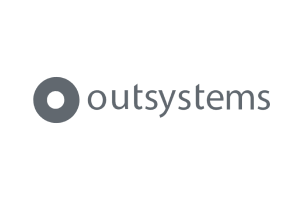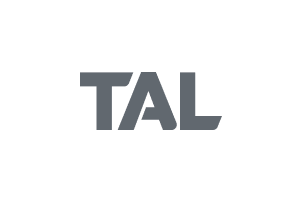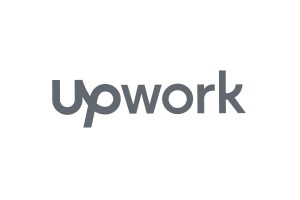TRUSTED BY















































































Managing a contingent workforce can be complicated. Our solutions make contractor management easy, compliant and affordable.















































































We take the hassle out of finding, engaging and paying contractors anywhere in the world.
Put simply, we help you get the most out of your workforce – without the headache.
An organisation is only as good as its people. The problem is, finding the right talent is hard — especially right now. With record resignations, rapidly changing employee expectations and skill shortages across the board, many organisations are struggling to find and attract quality candidates. We can help.






Are you using the best process to compliantly engage your contractors? Or are you risking worker misclassification, tax issues and more by failing to give it your full attention? The legislation around the contingent workforce is constantly changing, and it can be hard to keep up. There is another way.






Contractor management involves a lot of moving parts, and sometimes it takes all of your resources just to keep the wheels turning. But if you don’t have a solid strategy in place, you could be incurring unnecessary costs and even putting your business at risk. Don’t worry — we can help.






Hiring contractors and other non-permanent workers can mean big results for your business — but it comes with a lot of challenges too. Don’t let payroll be one of them. In a world of increasing complexity and ever-changing regulatory requirements, we provide easy, streamlined payroll that just… works.






UNSW was looking for the services of a well-regarded and capably resourced independent provider to engage, manage and payroll our contractors.
On an annual basis, we require the services for approximately 100 IT contractors across the university. It was important that we partnered with a provider that had the people, processes and technology necessary to support our contractors and the valuable work they do for the university.
CXC provided us with a comprehensive contractor management solution that met our business objectives…

CXC is a team of highly dedicated, committed and transparent professionals. They did the task that our previous agency could not do in one year.

Through our partnership, News Corp have received cost savings of $500,000 in the first year, by standardising agency margins.

CXC’s solution has delivered an enhanced contractor management process to GitLab, with the solution launching in Poland, Ukraine, Russia, Romania and Portugal.

Annual cost savings of $1.2M have been achieved as a result of a workforce/payroll and tenure management program.

CXC are a recommended, reliable and trusted partner.

We have significantly improved the management and visibility of our contingent workforce, as well as reducing our risks and costs. Over time as we bring on more contractors, we will see an improved contractor experience.

New contingent labour model for IMG, brought visibility, control and business compliance of over 1,000 workers in the UK.

CXC continue to demonstrate a comprehensive understanding of risk management, contingent workforce management trends and legislative change.

UNSW was looking for the services of a well-regarded and capably resourced independent provider to engage, manage and payroll our contractors.
On an annual basis, we require the services for approximately 100 IT contractors across the university. It was important that we partnered with a provider that had the people, processes and technology necessary to support our contractors and the valuable work they do for the university.
CXC provided us with a comprehensive contractor management solution that met our business objectives…

CXC is a team of highly dedicated, committed and transparent professionals. They did the task that our previous agency could not do in one year.

Through our partnership, News Corp have received cost savings of $500,000 in the first year, by standardising agency margins.

CXC’s solution has delivered an enhanced contractor management process to GitLab, with the solution launching in Poland, Ukraine, Russia, Romania and Portugal.

Annual cost savings of $1.2M have been achieved as a result of a workforce/payroll and tenure management program.

CXC are a recommended, reliable and trusted partner.

We have significantly improved the management and visibility of our contingent workforce, as well as reducing our risks and costs. Over time as we bring on more contractors, we will see an improved contractor experience.

New contingent labour model for IMG, brought visibility, control and business compliance of over 1,000 workers in the UK.

CXC continue to demonstrate a comprehensive understanding of risk management, contingent workforce management trends and legislative change.

UNSW was looking for the services of a well-regarded and capably resourced independent provider to engage, manage and payroll our contractors.
On an annual basis, we require the services for approximately 100 IT contractors across the university. It was important that we partnered with a provider that had the people, processes and technology necessary to support our contractors and the valuable work they do for the university.
CXC provided us with a comprehensive contractor management solution that met our business objectives…

CXC is a team of highly dedicated, committed and transparent professionals. They did the task that our previous agency could not do in one year.

Through our partnership, News Corp have received cost savings of $500,000 in the first year, by standardising agency margins.

CXC’s solution has delivered an enhanced contractor management process to GitLab, with the solution launching in Poland, Ukraine, Russia, Romania and Portugal.

Annual cost savings of $1.2M have been achieved as a result of a workforce/payroll and tenure management program.

CXC are a recommended, reliable and trusted partner.

We have significantly improved the management and visibility of our contingent workforce, as well as reducing our risks and costs. Over time as we bring on more contractors, we will see an improved contractor experience.

Our geographic footprint spans 5 continents, providing services from over 30 offices.
If you’re interested in seeing what CXC can do for you, or if you have any questions about how to improve your contingent workforce program, please contact us today.




